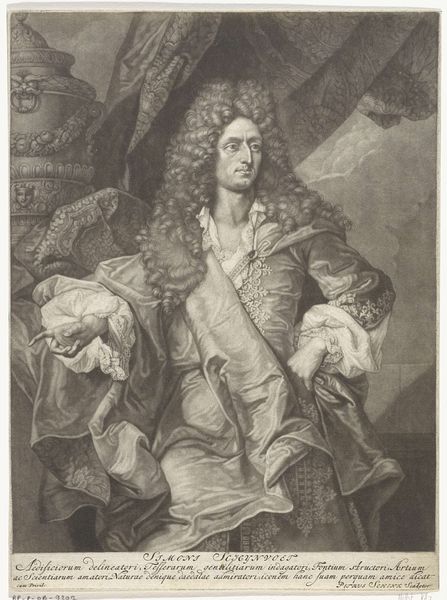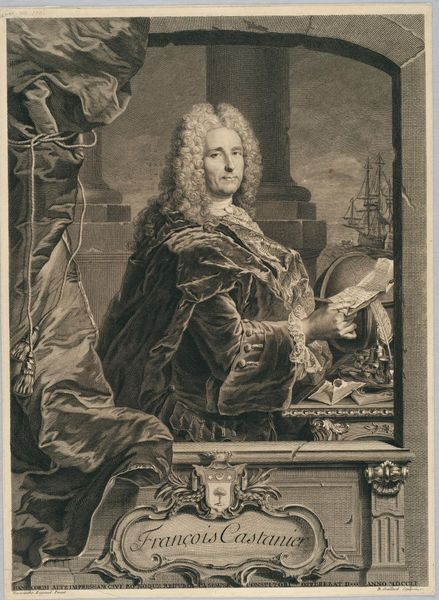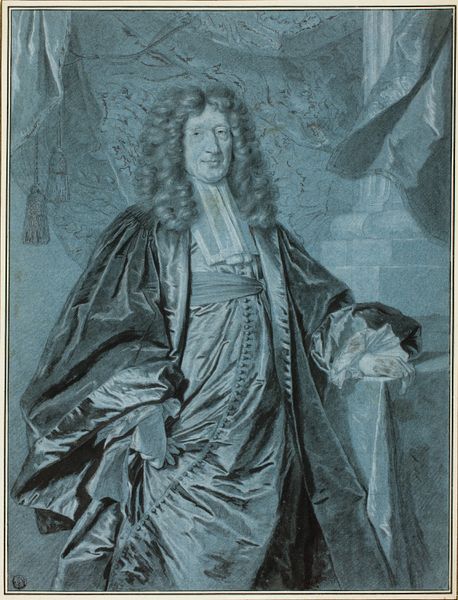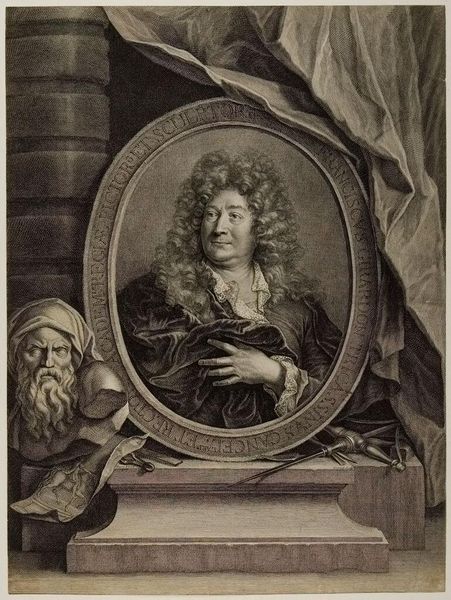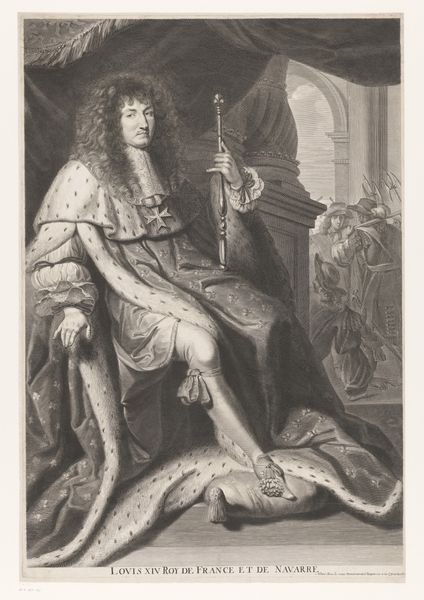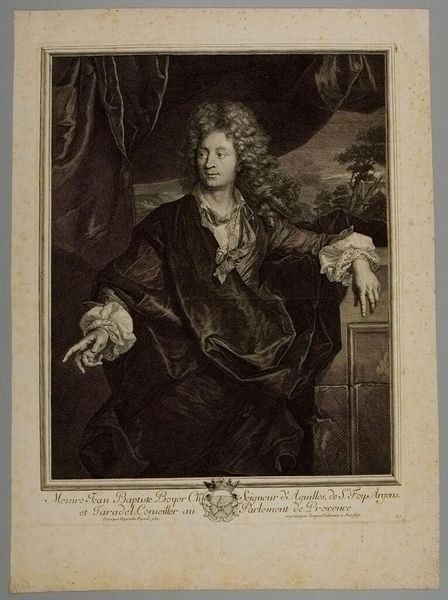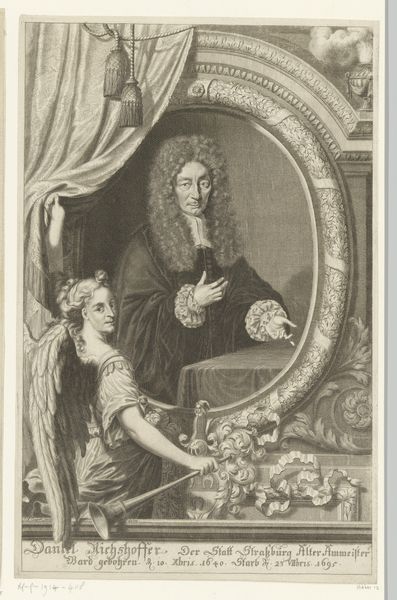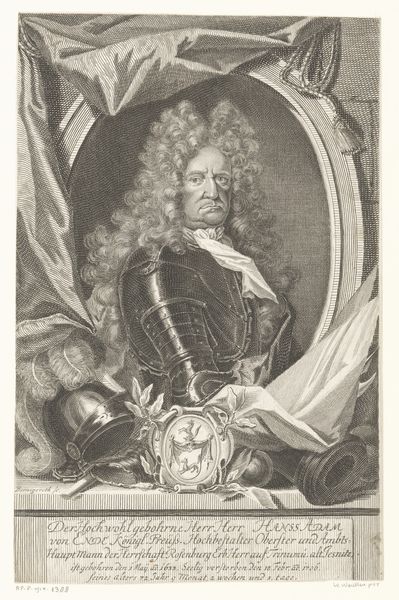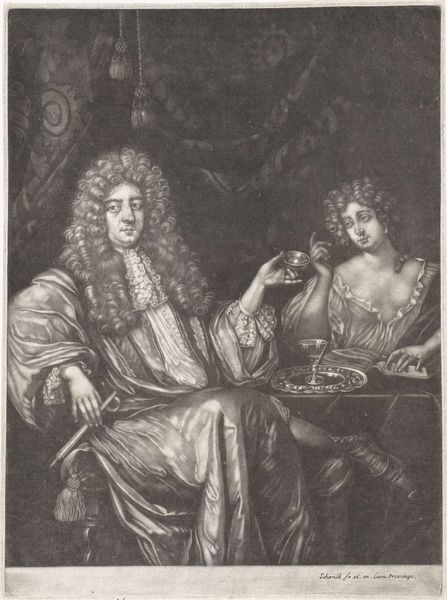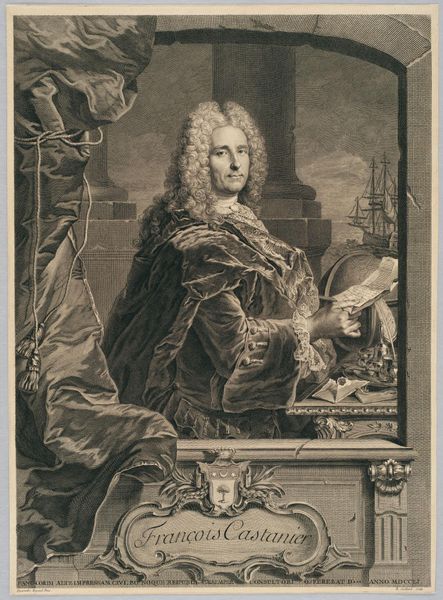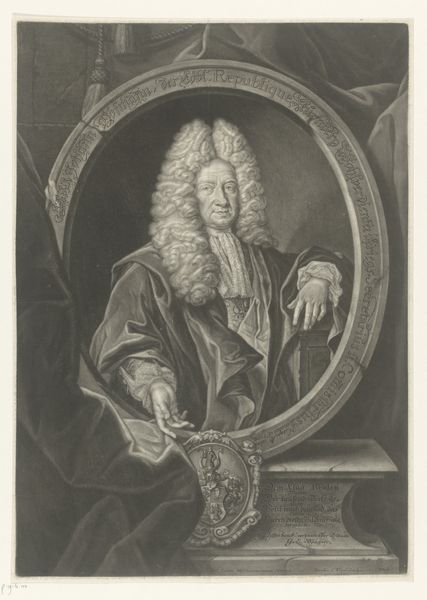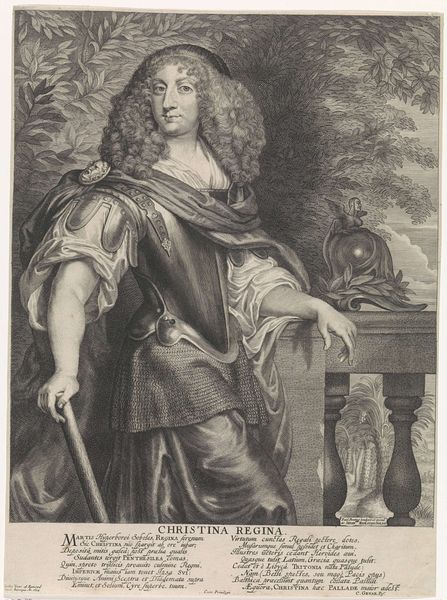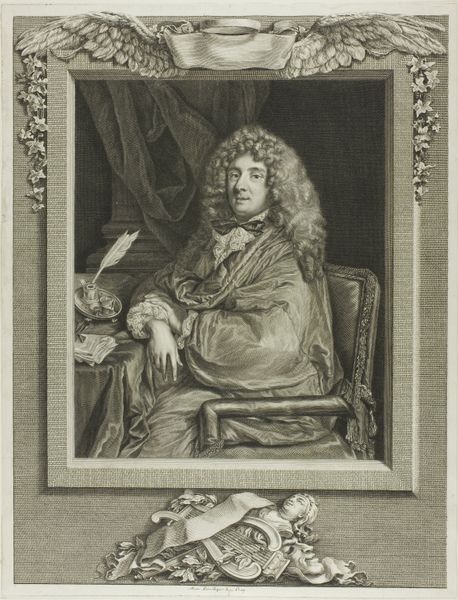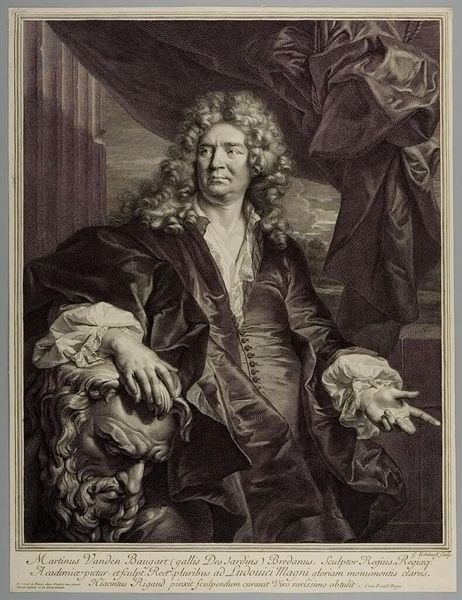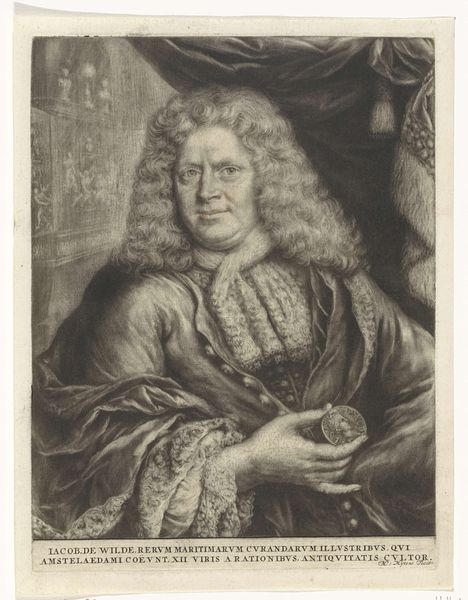
painting, oil-paint
#
portrait
#
baroque
#
painting
#
oil-paint
#
group-portraits
#
genre-painting
Dimensions: 47.8 x 39.7 cm
Copyright: Public Domain
Curator: Standing before us is "Portrait of Pieter Six with a Servant Bearing Hunting Booty," an oil painting completed in 1677 by Caspar Netscher. Editor: The muted color palette creates a rather subdued atmosphere, despite the obvious opulence implied. It feels staged, deliberate... controlled. Curator: Absolutely. Netscher, working within the late Dutch Golden Age, was masterful at depicting wealth and social standing. Pieter Six, the man portrayed, came from an elite family, and this painting served to reinforce his status. Think of it as carefully crafted social messaging. Editor: I notice the boy, likely a servant, holding what appears to be a dead bird—a symbol, perhaps, of Six's dominion, not just over nature but also over people. And look at Six's languid pose and the intricate details of his clothing. It’s all very carefully composed. I wonder about the implications for class dynamics and power relations depicted so explicitly. Curator: The painting within a painting in the background, as well as the sculpture on the left, point toward artistic patronage and erudition, reinforcing Six’s refined status. There’s also an aspect of the burgeoning power that Six wielded as an important administrator. It is a clear indicator of class difference and hierarchy. Editor: The gaze is interesting too. There's a slight air of detached amusement, as if Six is observing, rather than actively engaging with us. Curator: That's an interesting observation. The visual construction of status here is central, and what it might imply about those not represented is really worth considering. Editor: It makes you ponder who had access to such self-representation, and how that visibility further solidified existing social structures. It certainly presents an image crafted for posterity and societal validation. Curator: It's fascinating to consider how these portraits function both as individual representations and as powerful instruments shaping societal narratives and our perceptions of privilege. Editor: Exactly. This portrait really provokes critical questioning of power and its visual manifestations in art.
Comments
stadelmuseum about 2 years ago
⋮
Caspar Netscher portrayed Dutch ‘high society’. Although often painted by the same compositional formula, his small portraits possess a distinctly elegant quality. Pieter Six was the nephew of Rembrandt’s patron Jan Six. At twenty-two, he was just embarking on his career when he commissioned this likeness. Artworks, precious fabrics and an Oriental rug testify to his wealth. The two dead partridges in the servant’s hand are also a status symbol. Hunting was a privilege associated with a title of nobility, which could be purchased by rich burghers.
Join the conversation
Join millions of artists and users on Artera today and experience the ultimate creative platform.
